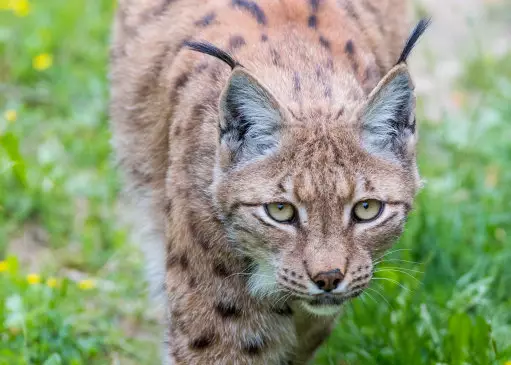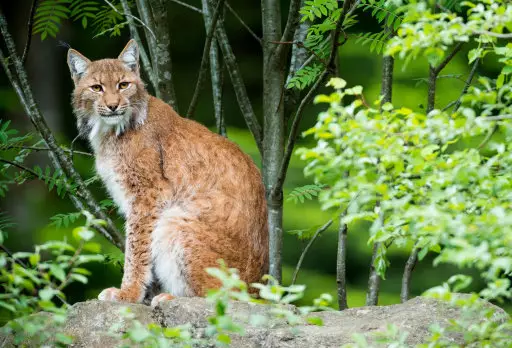
Authorities have issued a warning following the escape of a large cat, believed to have been on the loose for up to five days.
The Eurasian lynx vanished from the Borth Wild Animal Kingdom near Aberystwyth last week. If spotted by members of the public, the Mirror reports that they have been warned 'not to approach' the animal and instead to call 999.
The female cat - named Lillith - is described as being tan and white in colour, with dark spots on her back and legs, and large teeth and claws. She is about twice the size of a domestic cat.
Advert
Although officials hope the cat has 'not gone far', the lynxes are capable for travelling at up to 12 miles per day. A police helicopter was scrambled yesterday, in an effort to find the cat using infra-red cameras.


Credit: PA Images
The lynx has been extinct in the wild in Britain for 1,300 years but are still found across Europe and North America, they are solitary creatures that tend to hunt at night, so are rarely seen by humans.
Advert
Local police said the public in the area should be 'alert and vigilant' until the beast is caught.
A Dyfed-Powys Police spokesperson told the BBC: "The lynx is unlikely to approach people, but may attempt to take livestock or pets as food.
"We do however advise that the animal should not be approached as it could become aggressive if cornered.
"It is believed that the lynx remains in fairly close proximity to the Animalarium, but of course it could potentially go further afield."


Credit: PA Images
Advert
Members of the public have been warned the animal could retaliate 'if cornered or trapped', however there has never been an attack recorded on a person.
"We have fully-trained keepers on hand to deal with the situation," said a park spokesperson.
"She is not used to hunting live prey but will chase rabbits and rodents when she gets hungry.
"Lynx can travel about 12 miles a day, but the chances are she hasn't gone far.
"We will be putting out camera traps around the perimeter of the zoo and relying on sightings by the public. Once we learn her location and follow her trail pattern we can set up monitored traps to catch her."
Advert
Source: The Mirror and BBC
Featured Image Credit: PA Images